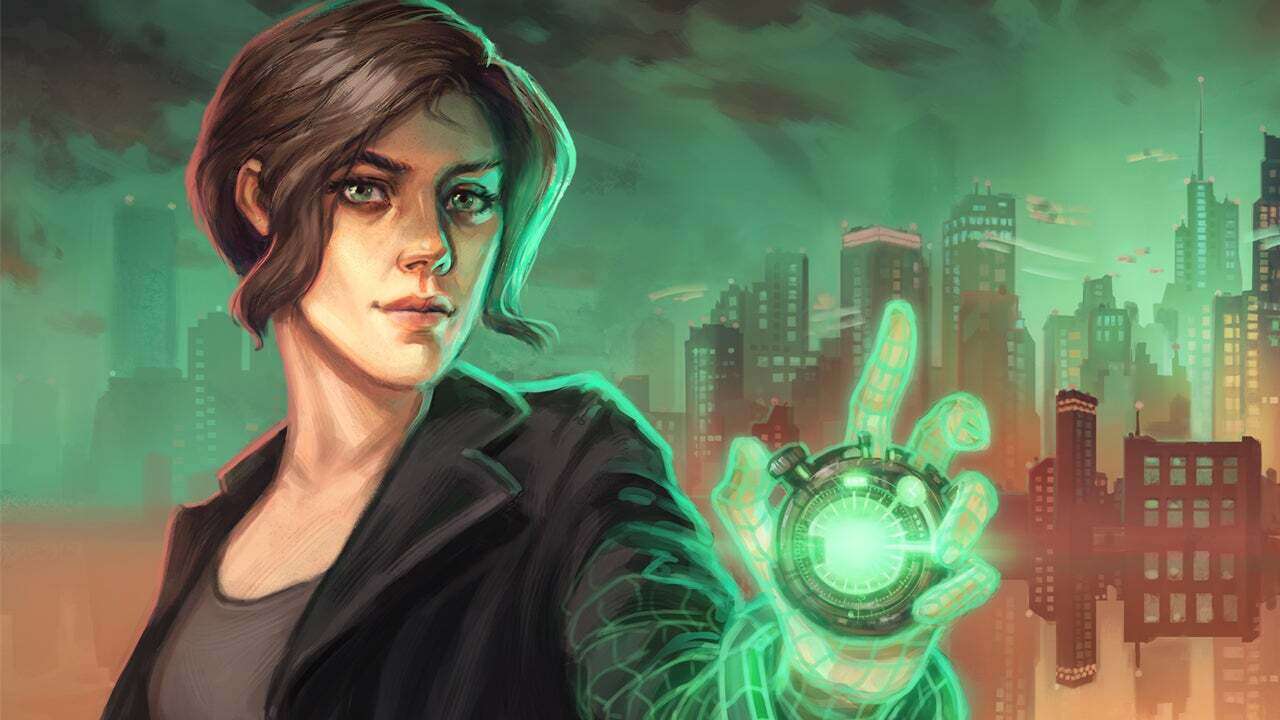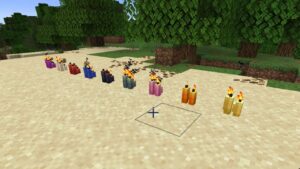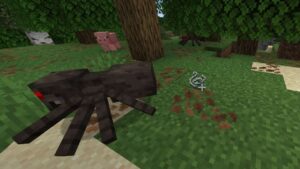For as much as change can be scary, it can be all the lonelier to remain stagnant while the world and the people in it continue moving on without you. That’s the crux of Old Skies, a point-and-click adventure game in which you play as Fia Quinn, a professional time traveler immune to the effects of the shifting timeline. On the surface, Old Skies first appears to be your typical time-travel story about the pitfalls of affecting time, but the story surprises in how it instead delves into the negatives of not influencing the flow of time, of being someone that no one remembers, regardless of what you accomplish. It makes for an incredibly affecting tale, one that has stuck with me since the credits rolled.
As Fia Quinn, you’re tasked with traversing the timeline through a handful of moments in New York’s history, ranging from the Gilded Age to the morning of September 11, 2001 to an impactful afternoon in 2042. Fia works for ChronoZen, an agency that takes wealthy clients back in time to relive moments of the past, solve their long-forgotten mysteries, or change minor details about their life that they regret. The work rarely goes as planned, forcing Fia to adapt on the fly and deduce the best way to get the client what they want without affecting aspects of history that the algorithm-following higher-ups have decreed must remain unchanged.
For better and worse, Old Skies is extremely linear, with only one solution to each of the problems that Fia comes up against. In terms of narrative theming, I like this a lot–it reinforces that Fia’s fate in this story is unyieldingly static and that the timeline in general must follow a set series of events. But this structure hurts the gameplay, too. There were times when I thought of a way to solve the problem at hand, and it didn’t work–forcing me to guess a bunch of random solutions instead–and if the right answer was nonsensical, I’d grow irritated, especially if the solution I’d presented utilized a throughline of logic the game had already established in an earlier puzzle. If I have to use cash for Fia to bribe someone in the very first mission, using money to bribe people should be a valid way of collecting information later when speaking to people who are clearly looking for cash. And yet, I don’t think I could bribe a single other person for the rest of the story, despite money appearing in Fia’s pocket with every time jump–a constant reminder of an item I could not use and was foolish for thinking otherwise.
Granted, that problem isn’t exactly new to the genre, and Old Skies isn’t doing anything brand-new with the point-and-click-adventure formula. It relies on the tried and true method of encouraging the player to exhaust dialogue with every character, click on everything you can, and deduce what items or clues are necessary to overcome each roadblock. The puzzles are a bit hit-or-miss–many of them do follow a logical train of thought, and it’s rewarding to correctly extrapolate the necessary steps Fia needs to take and then see your intuition result in success. But just as many times, especially in the latter half of the game when the puzzles start getting fairly complex, the solution feels illogical, as if the game wants you to guess how to proceed and keep guessing until something works. Whenever this happens, it frustratingly slows the cadence of the story, which is the best part of Old Skies.

In each of the handful of cases that Fia gets, the story delves into themes of love and loss, and the nagging itch of regret that can often accompany the two. Fia and her coworkers are immune to the flow of time as part of their job, so although the people and places around them are constantly in flux, the employees of ChronoZen remain static and unchanging. What’s posited as a potential boon early on is quickly revealed to be closer to a curse. Fia and her coworkers can’t have meaningful relationships or enjoy most hobbies outside of work–friends, spouses, and children can become unrecognizable or be outright erased based on timeline changes, and movies, books, restaurants, and museums can cease to exist while Fia or her coworkers are still in the middle of enjoying them. The only constant Fia has outside of work is a bar that ChronoZen made immune to the time stream. Early into the story, she comments that she even lost her home once–there was a period when history briefly changed, and her apartment was temporarily erased.
It’s a lonely existence, one which methodically gnaws at Fia’s psyche and emotional well-being throughout most of the game, as well as that of the player by regularly eroding any sense of emotional stability with well-timed narrative-driven jabs to the gut. The story does a fantastic job of hurting you whilst dangling a crumb of hope that things will get better for Fia if you can stomach pushing her through just one more workday. Fia’s growing desperation to find stability matches the pacing of the story and the player’s own yearning for a happy ending that feels deserved but is clearly not guaranteed, and you just have to keep going to see what type of conclusion Fia will get.


There’s a growing connective tissue between each storyline as you play, building up New York almost as yet another coworker immune to the full ramifications of time travel. Which you wouldn’t initially think, since New York has changed a lot over the years–the nightlife of Prohibition is nothing like the morning of 9/11, and the people in a college town in 2024 don’t look and act like those living along the boardwalk in 1993. But Old Skies draws connections between these characters and places, maintaining enough of an identity for New York for the player to latch onto.
And once you start noticing those details, a far more interesting mystery develops: Is there more to these connections beyond happenstance and coincidence? Is fate real? Several of the characters that Fia meets have different opinions on the matter, and it’s here where the game does afford the player some agency in the direction of the story, guiding Fia toward or away from a more fatalist view. Disappointingly, it doesn’t change where Fia ultimately ends up, but these choices do broach interesting questions about the nature of free will within the context of the narrative and amplify the emotional consequences of Fia’s actions, intentional or not, when they impact Old Skies’ memorable characters.


Speaking of, Old Skies has nothing but great characters, each brought to life with a collection of incredible voice acting talents. Actor Sally Beaumont (voice of Fia) is the natural standout, bringing a playful inquisitiveness and smug authority to the time-traveling hero that’s punctuated by an adorable, awkward stammering when she tries to flirt, or barely contained desperation when she’s bottling up the rising feeling of helplessness. But I have to give props to the two performances that made me laugh out loud: Chanisha Somatilaka’s Yvonne Gupta and Sandra Espinoza’s Liz Camron. The former perfectly sells the exhausted enthusiasm of an experienced journalist trying to welcome a newcomer to the industry, and the latter gives life to one of the most chaotic and fun “I’m hot and young so consequences be damned” characters I’ve ever seen. Even though I already know where Old Skies’ story ultimately ends up, I want to replay the whole thing just to go on that journey again and once more hear those lines. Gosh, and the music? Especially the songs with vocals? Chills, absolute chills.
With a set destination, the journey has to be the focal point of Old Skies–which is great for it, as the game is a fantastic journey. The memorable dialogue is bolstered by an incredible cast of voice actors, and the story is compelling from its shocking first hour to its timey-wimey final moments. I’m normally one to play point-and-click games in small bursts to sit with each chapter of the story, but I found myself regularly playing Old Skies in large chunks, going through multiple chapters in each sitting just to see what would happen next. And even though I didn’t enjoy every step there, the overall package more than made up for it with one of my favorite stories of this year.









